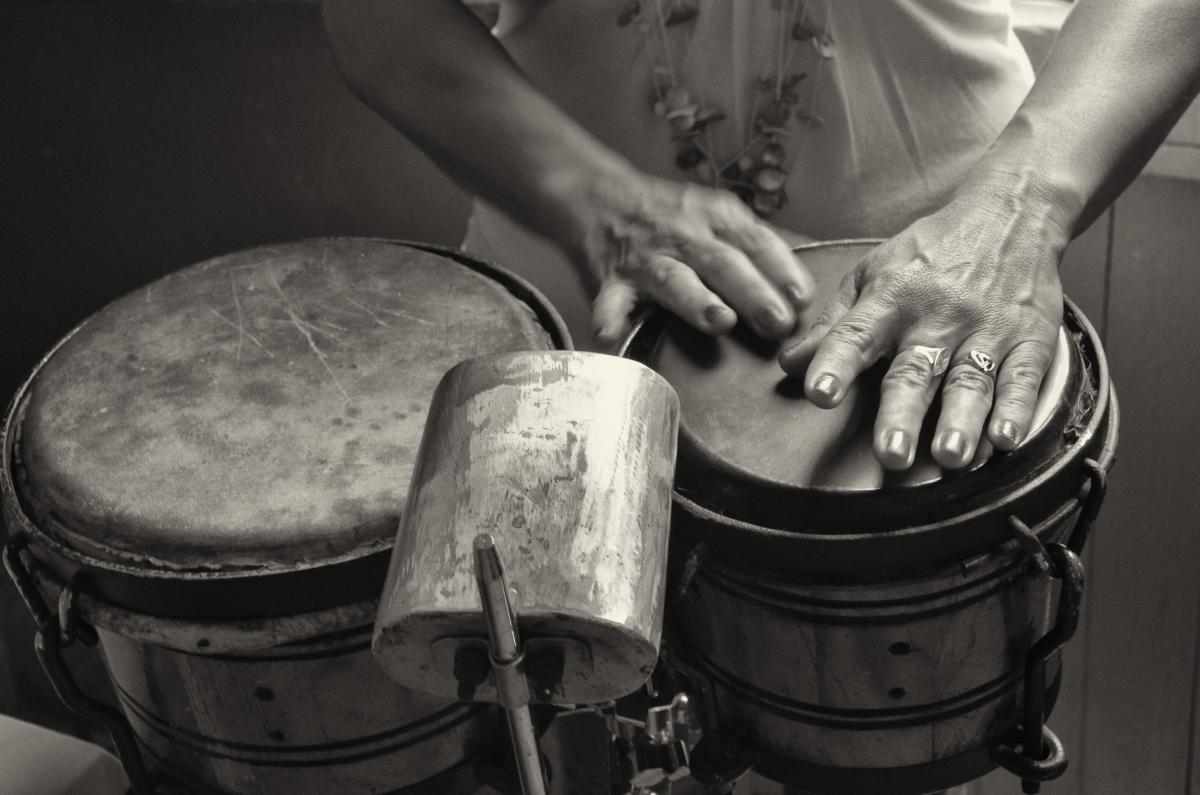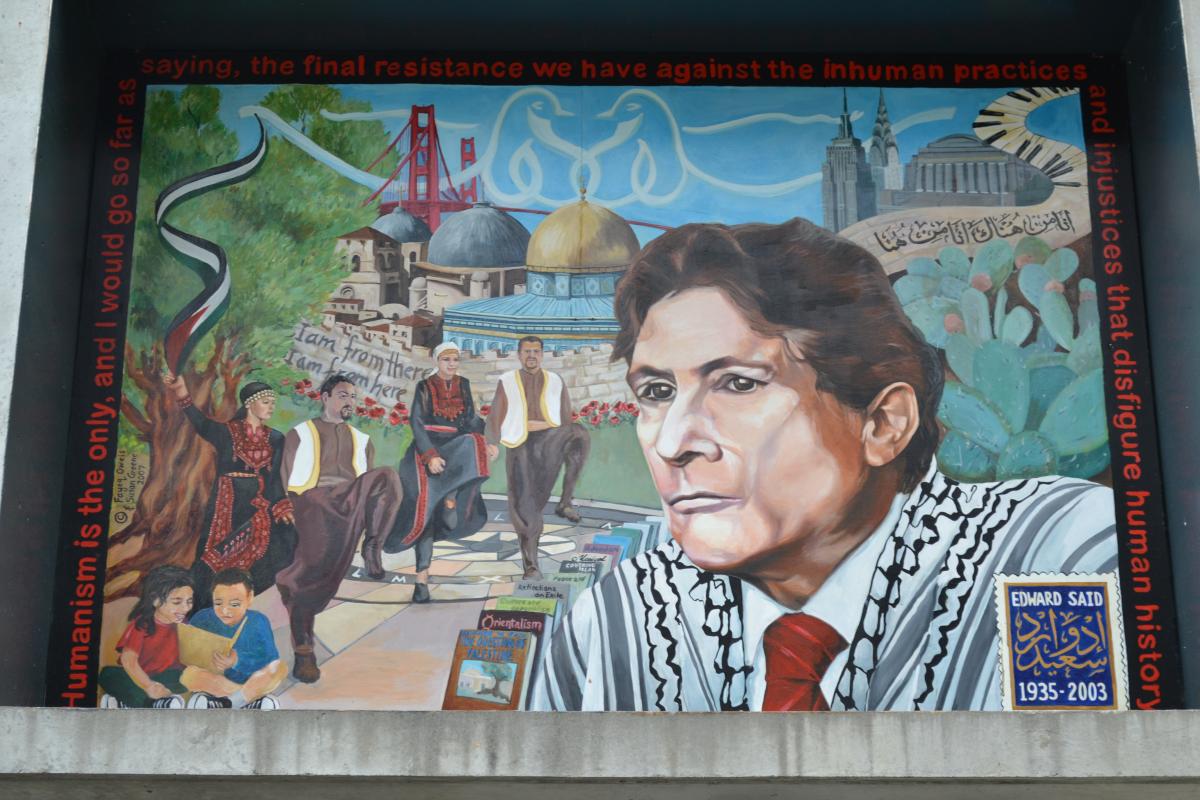
«Crazy Energy» in Trans-Atlantic Soca
Things have been shaking in soca: From road-running superstar Machel Montano collaborating with hitmaking DJ Diplo to the genre-pushing success of Bunji Garlin’s «Differentology», the genre is going through a period of serious transformation. One of the most interesting groups working to explore and expand the boundaries of soca is Jus Now, a production duo comprised of the U.K.-born DJ Interface (Sam Chadburn) and the Trinidadian LAZAbeam (Keshav Singh). Sam Backer from Afropop Worldwide emailed with the duo about their music and the future of soca.
[Sam Backer]: I think it’s really interesting how Jus Now connects the dance cultures of the U.K. and Trinidad and Tobago. What do you guys see as the major difference between the two scenes? Do those differences impact the music that you make? And do you tend to aim tracks or mixes for one audience or the other?
[Sam Chadburn]: They are very different. Both have their pluses and minuses. When I’m deejaying in either country I definitely have to tailor my sets. The U.K. is definitely more open-minded to new sounds and rhythms. But in the U.K. we want our music to sound and feel a certain way, especially in the bottom end. For example, rather than play my favorite soca tracks in a U.K. rave, I would prefer to make a remix of it, so it can compete with the weight of the U.K. music I like to play.
In Trinidad the sound systems quite often aren’t set up to deal with massive bass weight. There is a lot more emphasis in Trini music on rhythm and groove, and especially with soca music, there is a certain way the Trinidadians like the grooves to be. For example, with the snare placements and the bassline groove, if you stray too far from the norm some people will get confused and stop dancing! One of my favorite things about Trini parties is that you will often find a «rhythm section» accompanying the DJ, which is a group of drummers and percussionists, who actually play along to what the DJ is playing. This brings an amazing energy to the party and is something we try to bring to our live shows with Lazabeam and his live percussion. When we first started, the sounds we created as Jus Now we were kinda alien to both the Trini crowd and the U.K. crowd, but it’s nice that people are really starting to understand what we are trying to do on both sides now.
[Keshav Singh]: Also, a key difference is the way that audiences/partygoers react to big tunes in a dance. In the U.K. the crowd raises their hands to the air when the drop comes, but in Trinidad a lot of the dancing happens from the waist down. As Sam said, when we first started playing out, the sound was a little alien to either side, but it’s very encouraging to see both audiences adopting characteristics from both the Trini and English style. We do strive to make music that can ultimately work in any context. That is a constant and exciting challenge. The «drop» style vs the «groove» style is something that informs a lot of the music we do. If you listen to what we’ve got out currently, there’s a mix of both of those inclinations.
[SB]: Soca has been getting a lot more media attention lately. What do you think of the scene in Trindad and Tobago? Do you think it’s more active than it used to be–that it could be primed for a crossover?
[KS]: As a Trinidadian it’s really encouraging to feel the momentum that’s behind our music right now. Bunji is absolutely smashing it at the moment. And with people like him, Machel Montano and Kees Dieffenthaller at the helm of our sound at the moment, we are more ready than ever to explode on a global scale. The soca scene, since its advent in the ’70s, has always been a hugely exciting thing. Tons of new music is always created during carnival time, but often that’s it…
We usually only engage in the creation of our own indigenous sound during a four-month period of the year. As you rightfully say, it is changing, and the push is more outward. What you’re seeing now is the beginning of a more diverse style of writing in the music – something that I believe will help soca in its international exploits. Until now it has mostly been centered around specifically carnival oriented themes. Speaking optimistically, there is a definite increase in the attention being paid to making the mix downs ready enough for contemporary listenership, and that is a big factor in popular music. Times are changing and it’s wicked for Sam and I to be in the thick of it as ambassadors of the sound. It’s an honor.
[SC]: I can’t really comment on the history as my experience is only the past four years, but it is definitely an exciting time for soca. Caribbean music and culture in general are definitely getting a lot of limelight right now, what with the success of Major Lazer and lots of big rappers working with or sampling dancehall artists. The success that Bunji has been having with «Differentology» is incredible.
That track just seemed to grow and grow and grow. Who knows where it will end up! As far as soca as a genre, I think there is still a lot of work to do before soca can be truly internationally recognized worldwide in a way that, say, reggae and dancehall are. For example, soca music is not even recognized as a category in iTunes. I also feel like carnival is both a blessing and a curse with soca music, as the whole music industry in Trinidad revolves around Carnival. It’s completely seasonal, which I find really annoying. From September to February my inbox gets bombarded with so many soca tracks that I don’t have time to listen to even half of them, and for the rest of the year, nothing!
If the artists continued to create after Carnival and started writing soca music that wasn’t specifically about subjects only relevant to Carnival, the whole industry would be a whole lot healthier! Thankfully, that is starting to change a little bit now and hopefully it will continue to change to the point where soca artists are releasing music all year round and writing interesting songs over soca beats that aren’t just designed to be the next soca monarch smash but could actually appeal to a wider audience. Bunji has set the mark for that now and I think others will continue to help with that growth.
[SB]: What were some of your favorite tracks from this year’s Carnival, or just from soca lately?
[SC]: Lead Pipe, «Drink Till Morning»: This one crept up on me this year – the amount of new soca music that gets released over carnival is quite overwhelming. You quickly get to know the tracks from the biggest artists, as you will hear them over and over, but then every year you get quality music by the lesser-known artists that build momentum a bit more slowly throughout the season. This one became my favorite by the end of Carnival.
JoJo, «Shake Dat»: Another one from a lesser-known artist that smashed it for me this year – very simple, not a lot of lyrics and quite a stripped-down beat. It could almost pass for a house track. Wicked vibes.
Farmer Nappy, «Big People Party»: I loved this one as soon as I heard it. When De Red Boyz production team from Barbados gets in the studio with Farmer Nappy they are a great combination! I love the Red Boyz’s productions. I love electronic music with soca, but I also love it with real instruments and De Red Boyz are great at producing modern soca with a classic sound.
[KS]: I’d definitely agree on those. I’d also like to highlight the producers that have been making big strides in soca music. London Future (currently released on Mad Decent subsidiary Jeffree’s), Precision Production (producers of the «Sando Riddim» and countless Road March winners), Sheriff (producer of «Differentology») and Madmen Productions have really stepped the game up. In Barbados, definitely De Red Boyz are world class, and Studio B («Drink Till Morning» and «Redlight District» by Bunji) are sick!
[SB]: How do you approach a track when you’re making it? Does one person tend to start the track, and the other expand on the initial idea? Or is it fairly back and forth?
[SC]: We both have very different skill sets, which is why I think we work really well as a team. It’s usually Keshav who will bring the rhythm and the music vibes. I don’t really play any instruments – my thing is more sound design and arrangement. So Keshav will usually play some rhythms and musical parts. Then I will spend my time chopping them up, taking out the bits I like best and twisting and rearranging them. Then he will add more vibes and I’ll mess them up some more. That’s usually how it works.
[KS]: Collaborating on such an in-depth level can be challenging, but for us it’s very fun because we’re always learning more about each other’s style of production and each other’s tricks. We’re creating a crazy energy that just keeps growing and growing. Maybe it’ll get so intense that one day it’ll manifest itself as a physical being and turn in to the third member of Jus Now! The keywords are definitely «bass weight», «hard drums» and «danceability».
[SB]: I really love your song with Bunji. What was it like to work with him? Are there any other musicians from T&T that you are looking to work with? Any from the U.K.?
[SC]: Bunji is an amazing dude. The dude is a proper megastar in the Caribbean and fast becoming a megastar all over the world in general, but he is one of the most down-to-earth gentlemen you will ever meet. Whenever we have worked with him in the past I have always been stuck in the U.K. whilst Keshav does the recording, so I am yet to actually get creative with him in the same room, but we have a lot more work planned together, so we will do that soon I’m sure.
[KS]: Yeah man, Bunji is a true gentleman. A leader through and through, uncompromising about the responsibilities that rest on his shoulders. He’s been a friend of mine for some time, but we only started working together when the time was right and thus, «Tun Up» occurred! Since then he has been a joy to work with because he brings out the best in us, to be frank. We believe wholeheartedly in his drive and ambitions and he is a true champion for our causes as well. The «Viking» tag that is attached to him is simply because he goes forth aggressively carrying the flag of soca and Trini music without apology, much in the way a Viking leader would lead his troops. Boss man to the max.
[SC]: As far as other musicians from T&T, there is so much talent over there–it’s crazy… I’m not gonna single out any one artist, but there are definitely a few we haven’t worked with yet that we are looking forward to working with, and there are plenty we’ve already worked with, whom I look forward to working with more. What I’m really excited about doing is working with Trini artists and taking them out of their comfort zone, working on music that isn’t just aimed at Carnival (although don’t get me wrong – I love the Carnival stuff too).
Outside of T&T its more about the countries than actual artists I’d like to work with. The main aim for me with Jus Now is to be able to tour the world and collaborate wherever we go, whether the artists are well know or not–just to link up with talented people all over the world and have fun creating music together–that’s the dream! It’s really a blessing to be able to do this the way that we are. The world is starting to feel like a smaller place because of music and we’d like to play our part in bringing people and culture together. One tune at a time.
As far as artists in the U.K., I think Wiley has Trini roots. I’d love to make a track for him – that would be crazy!
[KS]: For me, working with people like Massive Attack, Skindred or Radiohead would be amazing as well, because we’d be able to bring our sensibilities to a world that is outside of our own. It would be interesting to see what a collision such as that would produce.
This interview was published first on Afropop Worldwide.
Biography
Published on May 26, 2014
Last updated on June 05, 2019
Topics
From breakdance in Baghdad, the rebel dance pantsula in South Africa to the role of intoxications in club music: Dance can be a form a self-expression or self-loosing.
Does the global appropriation of kuduro exploit or reshape the identity of Angolans? How are «local» music genres like guayla sustained outside of Eritrea?
Why does a Kenyan producer of the instrumental style EDM add vocals to his tracks? This topic is about HOW things are done, not WHAT.





